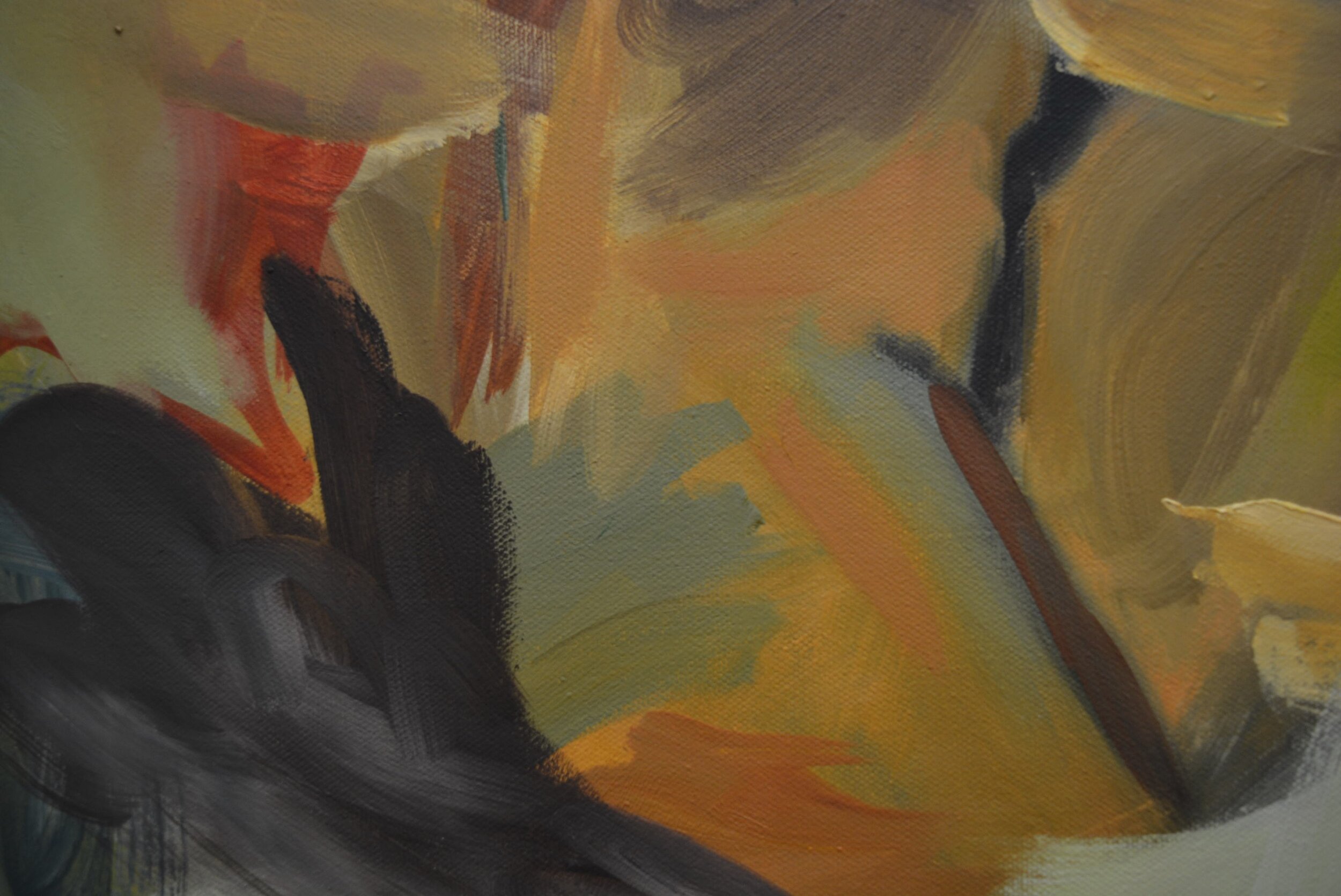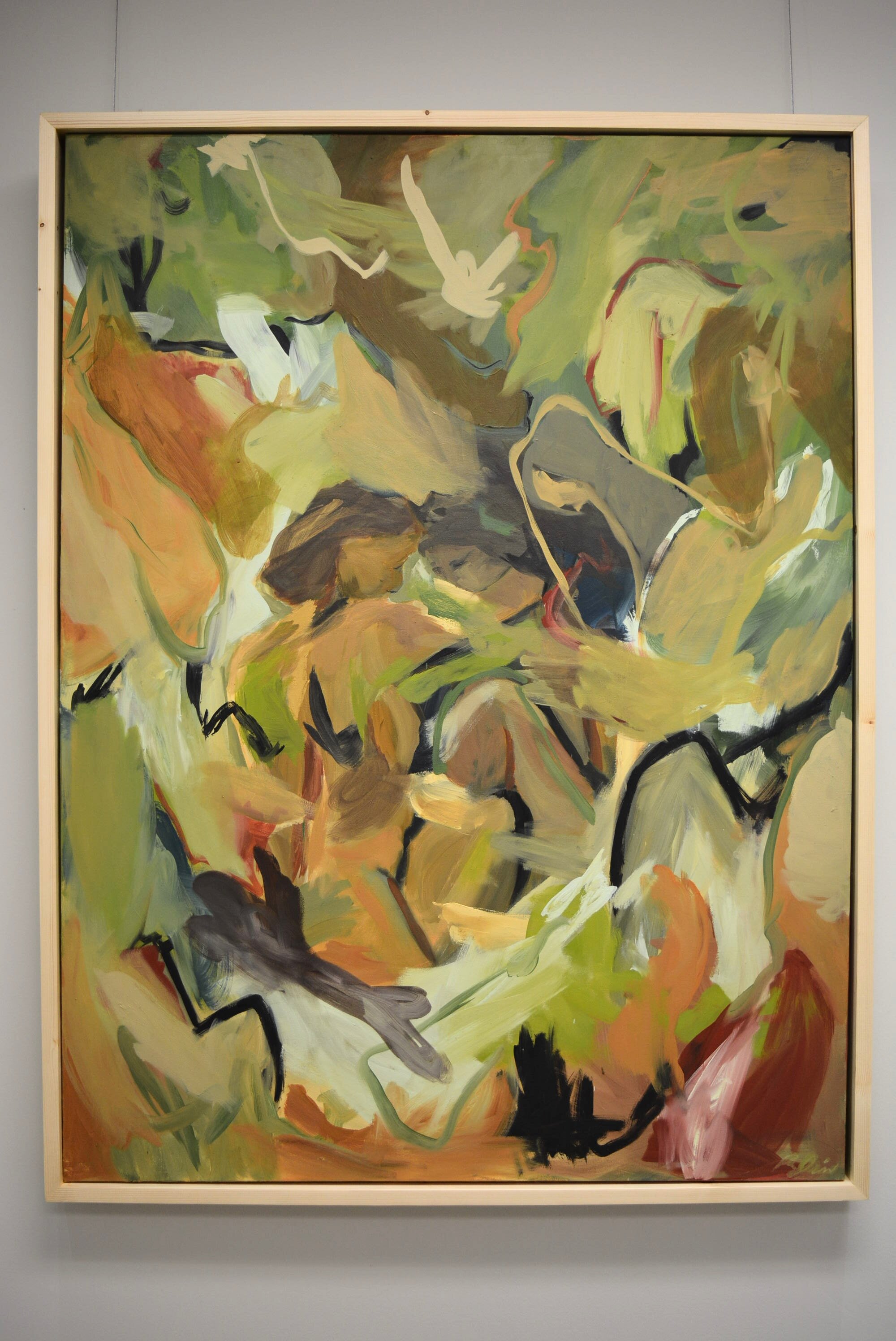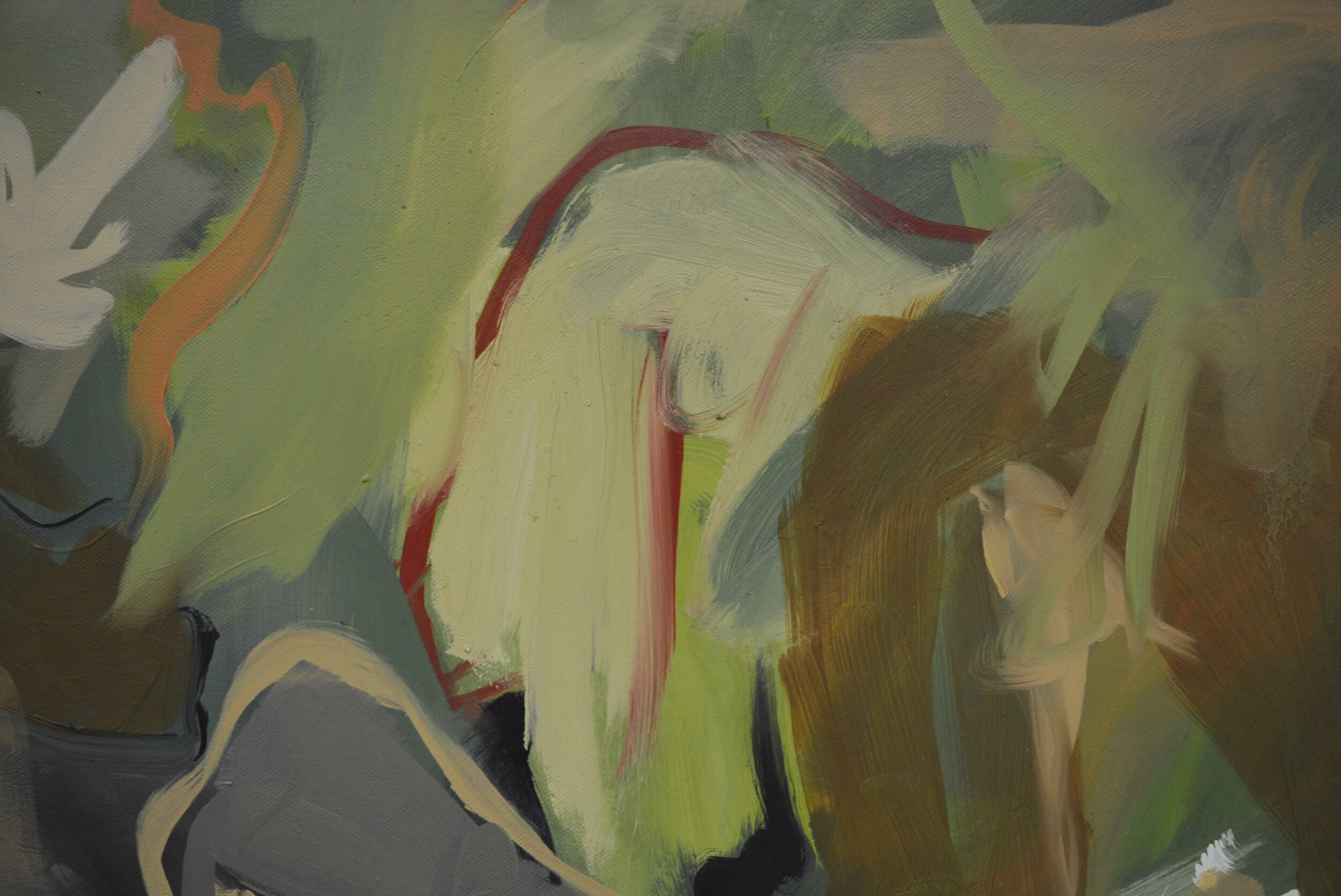Robyn Jin
Robyn Jin (she/her) is a Korean Canadian artist from Vancouver Island who is currently living on traditional Lekwungen Territory. Robyn’s main subject matter depicts her journey with Post Traumatic Stress Disorder and currently works with oil paint and ceramic mediums.
After studying Art Therapy, she began finding great comfort in expressing vulnerability and woundedness in her creations. Through rehearsed abandon, Robyn began challenging her inherent fastidiousness by warping forms, abandoning borders, expressing imperfections, and shattering perfectionism. She frequently pulls colours and textures from the forests of Vancouver Island as anchor elements of comfort and nurture. Robyn’s display of pain and loneliness in her work is soft in hope that her message can be met with empathy and plasticity. Her work is an invitation to others to find community in their darkness.
Never Seen
36” x 48”
Oil on canvas
$1980.00
To purchase, contact the artist
It’s nearly impossible to feel fully seen by others who do not share your lived experience. Never Seen shares the isolation BIPOC experience facing systemic barriers in a white society, while also showing the support we (BIPOC) can provide to one another within it. Nude and vulnerable BIPOC forms are hidden amongst the cedar trees to illustrate how privilege can limit what you see and understand. The chaotic interweaving of human and tree boughs also encourages your mind to explore the limitations privilege has in understanding environmental racism. Proceeds from this painting will feed into further racial and environmental justice work.


Never Seen | 36” x 48” | Oil on canvas | $1980.00

Hear Robyn’s Story.
Each contributing Colour Theory artist created an original essay or story to accompany their visual artwork. You can listen to the audio or scroll down to read.
Small Town, Minority Stress
Have you ever been asked: What are you?
When I was 13 years old, I moved from a diverse city to a rural town. The first questions I was always asked was, “Are you Native?” or “What are you?” or “Are you Chinese?”. It’s funny, it actually took me a while to realize they were referring to my physical appearance. I’m sure I came off a bit stunned, but I think all of us can sympathize with how hard it is to answer a question you’ve never been confronted with before. Once I figured out my answer, I was happy to share my Korean background with anyone who asked.
I was one of maybe four Asian Americans and Pacific Islander students at our school and the longer I spent time in my rural school, the more I was confronted with unyielding cultural representations or popular stereotypes of the Asian person. I was greeted in the hallways with poor Chinese accents, barbarized English, and made-up Chinese words. I was told my food was smelly by friends and shown dehumanized impersonations of my family by the boys. I started wondering if that’s how my Korean family spoke. I was anxious and couldn’t feel my body when this happened. My response was often to look down and giggle so that I felt blended in with everyone around me.
Again and again, I was asked ‘What are you?’ by new acquaintances. Yet, instead of being happy to share my background, my body began to freeze as I recited my answer. My past taught me that sharing my race with the wrong person led to these endless and horrible impersonations. I didn’t get it. These jokes put my stomach in knots but everyone else, my closest friends were giggling. I was a novelty and a chance for my peers to use racialized humour like they saw in stand up comedy shows. I couldn’t bear the thought of having a different sense of humor than my peers. The result was me lowering my eyes, looking away and allowing one giggle to escape my tightened throat. My attempts at advocating for my race were timid, quiet, and often met with incredibly painful silence.
Asian jokes were a pennyworth to the number of jokes made at or about my Indigenous peers and when I heard them a pit in my gut sank with a burning drop. It always felt so wretched, but I felt so alone in that experience. I felt like a minority without knowing the word minority. I was experiencing racism and microaggressions without knowing the words to put to those actions. I was never taught by a teacher of colour, I never saw these jokes challenged by our parents, I never saw another opinion that resonated with my internal experience.
For the many years following, minority stress, stereotype threat, and fear of judgement all became routine responses for my body whenever I was asked my background. I froze, answered, waited for impending jokes, giggled, and filled with shame.
And then, something amazing happened. The North American Indigenous Games came to Cowichan in the summer of 2008. I was working at Sport Check and NAIG teams were coming into the store by the bus load. I was flooded with athletes and coaches asking if I was competing in the games or if I was from the Cowichan Tribe. I was being asked where I was from, but this time it felt so different. I felt safe.
The teams in the store made people of colour a majority. It made me a part of the majority. This eliminated the sense of othering, the minority stress, stereotype threat, and poor social support I faced head on when asked the same question in a white dominated room. It was a celebration of our colours with both parties truly interested.
I tell this story today to summarize how much BIPOC’s cumulative experience can make one question like ‘Where are you from?’ a threat. Being called out for being different in a white dominated space can be intensely threatening. It comes with reminders of many instances of feeling less than, othered and being in the ‘out group’. In my case it comes with the immense shame for all of the past experiences I let others dehumanize my family or Indigenous peers and all I did was giggle.
It makes me wonder how many students of colour in small towns are rewriting my history with lowered eyes and giggles.
